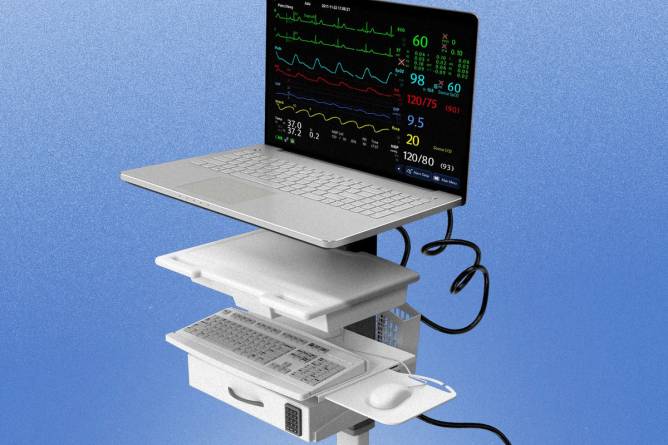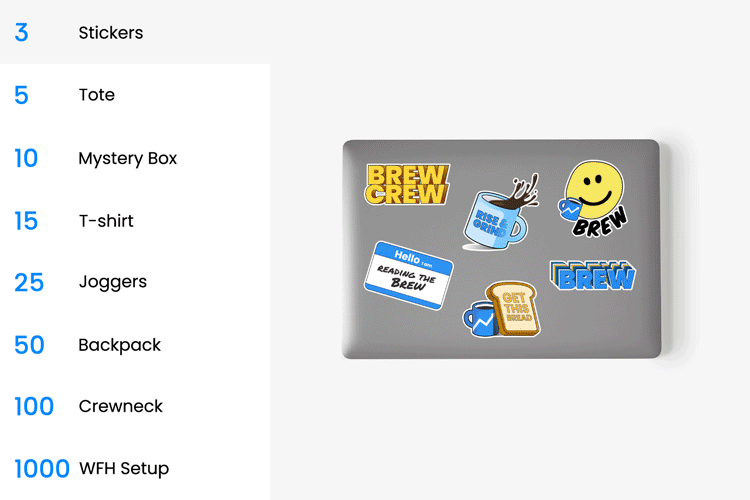TGIF! Tomorrow is Veterans Day, and many organizations are observing the federal holiday today. Healthcare Brew salutes our veterans and all those who care for them at the Veterans Health Administration, the largest integrated healthcare system in the US that serves 9 million veterans each year.
In today’s edition:
🩸 Blood management
 Getting on (the GI) track Getting on (the GI) track
 Making Rounds Making Rounds
—Kristine White, Shannon Young
|
|
Will Varner
Health systems may want to look at their blood management programs to reduce unnecessary and costly transfusions, new research presented at the American Society of Anesthesiologists annual meeting last month suggests.
Hospitals and health organizations like the Johns Hopkins Health System have developed blood management programs to “promote clear hospital transfusion guidelines,” according to the National Institutes of Health.
These programs use several methods to minimize blood loss during surgeries, which in turn reduce the number of costly blood transfusions. They have also saved the health system about $2.9 million in blood acquisition costs between 2012 and 2022, according to Johns Hopkins researchers.
“For every dollar we spent [on blood management programs], we’ve saved over $7 in return,” Steven Frank, the study’s lead author and professor of anesthesiology and critical care medicine at Johns Hopkins Medicine, told Healthcare Brew. “We never had a lot of extra blood, and if you can reduce unnecessary transfusions, you’ll have more blood available for those who really need it, like trauma victims.”
Keep reading here.—KW
Do you work in healthcare or have information about the industry that we should know? Email Kristine at [email protected]. For confidential conversations, ask Kristine for her number on Signal.
|
|
Got patients who never fill out any of your forms? It’s a common pain point in the healthcare space—orrr maybe you just haven’t found the right kind of form.
With Typeform, you can create forms that are more like real conversations. Ask questions one at a time instead of overwhelming your patients with way too many queries at once, all while staying HIPAA compliant.
Typeform also helps you get to know your patients on a more personal level with surveys and forms created just for them. These forms are HIPAA compliant too, so all of their collected data is safe and secure.
Get quality feedback, schedule appointments, and give your patients a smooth online registration process all in one place.
Create better forms today.
|
|
Xavier Lorenzo/Getty Images
Maybe IBS *doesn’t* have to be for hot girls.
Blue Cross Blue Shield of Massachusetts (BCBSMA) this month added a virtual care provider to its health plan aimed at addressing gastrointestinal (GI) conditions.
BCBSMA’s nearly 3 million BCBSMA members will have access to Oshi Health, a synchronous telehealth service for GI conditions—a speciality that’s historically not covered by insurance—the payer announced last month.
“We understand the challenges members face accessing high-quality, affordable specialty care,” Lisa Glenn, BCBSMA’s VP of network partnerships and innovation, said in a statement. “Bringing in these physician groups helps ensure we provide a top-notch experience to our members.”
Keep reading here.—KW
|
|
On Fridays, we schedule our rounds with Healthcare Brew readers. Want to be featured in an upcoming edition? Click here to introduce yourself.
This week’s Making Rounds spotlights Tony Vahedian, CEO of diabetes chronic care management company CCS.
Vahedian discussed how his company is trying to improve work culture in the healthcare industry, and how the sector is bracing for technology and Medicaid enrollment changes sparked by the Covid-19 pandemic.
This interview has been lightly edited for length and clarity.
What’s the best change you’ve made or seen at a place where you’ve worked?
One of the things we did really, really early on is understand where our culture was within the organization. We were pretty siloed: The business has been around for almost 30 years and has gone through all sorts of changes. We committed to rebuilding and redefining the culture with myself, my management team, and frankly, the entire organization because culture isn’t built by one individual.
You’ve got to be consistent in your messaging, and you have to create venues to connect; you’ve got to have clear, strategic guidance on where you’re heading. Then we built this culture around collaboration—that we’re all in this together. Culture has been the biggest accomplishment that I’m the most proud of so far. The business has done well, which is great, but we couldn’t have gotten there without the culture.
Keep reading here.—SY
Do you work in healthcare or have information about the industry that we should know? Email Shannon at [email protected]. For confidential conversations, ask Shannon for her number on Signal.
|
|
TOGETHER WITH ATHENAHEALTH
|
|
Is your EHR practical for your practice? A key part of delivering exceptional care is having streamlined access to patient data in the right moment. athenahealth designs simpler healthcare IT solutions that allow your team to focus on patients, not on busywork. Learn more about athenahealth’s EHR solutions.
|
|
Francis Scialabba
Today’s top healthcare reads.
Stat: The CDC reported more than 3,700 cases of congenital syphilis in 2022—10 times the amount reported in 2012. (Stat News)
Quote: “The equation is simple: If we were putting more resources into testing for [tuberculosis], we would be finding more TB.”—Yaw Adusi-Poku, a public health specialist at Ghana’s Ministry of Health who heads the country’s TB control program, on challenges related to testing for the infectious disease (the New York Times)
Read: Many prescription and over-the-counter drugs can affect people with obesity differently but aren’t clinically tested for those patients. That’s starting to change. (the Associated Press)
Fill me out: Typeform helps you create surveys and forms that your patients will actually want to fill out. Present questions one at a time, just like a real convo. Ask away.* *A message from our sponsor.
|
|
Looking to make your next career move? We’ve partnered with iHire and their network of healthcare-specific communities—like iHireNursing, iHirePharmacy, and iHireMentalHealth—to help you find your next rewarding role. Check out open positions for:
|
|
ADVERTISE
//
CAREERS
//
SHOP
//
FAQ
Update your email preferences or unsubscribe
here.
View our privacy policy
here.
Copyright ©
2023
Morning Brew. All rights reserved.
22 W 19th St, 4th Floor, New York, NY 10011
|
|










